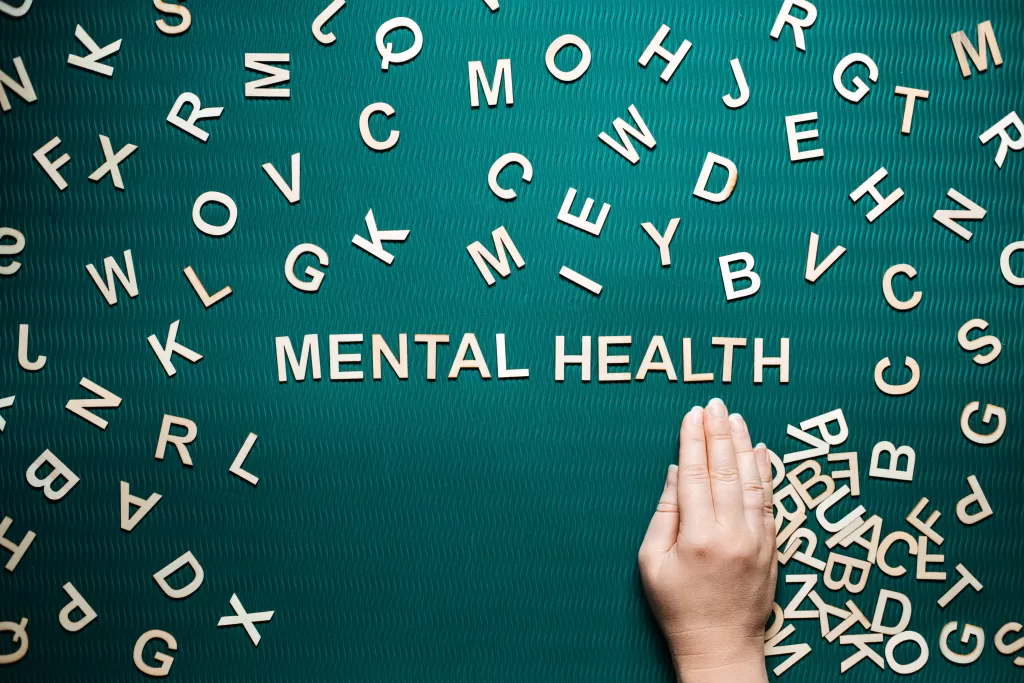Mental Health Month Awareness
Mental Health Awareness Month is a yearly event that takes place each May. It serves to bring attention to the importance of mental health. It is an opportunity to focus on positive mental health practices. This month creates a national dialogue about mental health conditions and their effects. As well as how we can work together to improve overall mental health for everyone. This year, Mental Health Awareness Month will focus on encouraging individuals to prioritize their mental wellbeing, as well as offering resources and support for those experiencing distress or anxiety.

Understanding Mental Health
Mental health is an important aspect of our lives that often gets overlooked. When we are not feeling our best, it can have a huge impact on both physical and mental wellbeing. Poor mental health can take many forms such as depression, anxiety, mood swings, and even substance abuse. While the effects of poor mental health vary from person to person, there are some commonalities that everyone should be aware of.
Poor mental health can lead to decreased productivity and creativity at work or school which could affect your career or grades over time. Additionally, it can also lead to difficulty sleeping, eating problems like overeating or loss of appetite, irritability and anger issues as well as feelings of hopelessness or worthlessness in extreme cases. Furthermore, if it’s left untreated for too long it may lead to increased risk-taking behaviors such as reckless driving or drug use.
What is Mental Health Awareness Month
Mental Health Awareness Month is an annual event that takes place in May to help raise awareness about mental health issues. This month-long campaign serves as an important reminder of the importance of mental health and wellbeing for all people.
During Mental Health Awareness Month, organizations, schools and communities throughout the United States hold events and activities to highlight the importance of good mental health in our lives. These activities often focus on promoting positive messages about looking after one’s mental health, providing resources to those in need, fundraising for related causes and advocating for improved access to quality care. Supporters typically show their support by wearing green ribbons or displaying green lightbulbs at their homes or businesses.
The goal of Mental Health Awareness Month is not only to raise awareness among individuals but also encourage them to take steps towards bettering their own mental well-being.
Causes of Poor Mental Health
Poor mental health affects many people and can be caused by a variety of factors. Mental illnesses like depression, anxiety, and bipolar disorder can be debilitating, but with the right treatment and support there is hope for recovery. So, what are some of the causes of poor mental health?
One common cause is genetics. Some mental illnesses have a genetic component. This means they may run in families or could be inherited from previous generations. This doesn’t mean that if you have a family member with a mental illness that you will necessarily develop one yourself. However, it does mean that you may be more likely to experience symptoms than someone without this family history.
Another contributing factor to poor mental health is stress or trauma in our lives. If you’ve experienced a stressful event in the past or if your life is particularly busy, you may be more prone to experiencing symptoms of mental illness.
A third factor can be a chemical imbalance. Mental illnesses such as major depressive disorder, obsessive-compulsive disorder (OCD), and schizophrenia are all believed to be caused by imbalances in the chemicals in the brain. This imbalance is what causes us to experience symptoms of mental illness.
Effects of Poor Mental Health
Poor mental health can result in a variety of adverse effects on our lives if left untreated.
When a person’s mental health isn’t in check, they may experience symptoms of mental illness. These symptoms include depression, anxiety, mood swings, or sleeping issues. These can impact their ability to function normally. They could experience difficulty concentrating and studying for school, issues with interpersonal relationships, or even physical pain as a result of their mental struggles. In extreme cases, poor mental health can even lead to suicide or self-harm attempts.
It’s important that people look after their mental wellbeing by seeking professional help when needed. Engaging in activities that reduce stress or increase positive emotions is beneficial as well.
Treatment Options
Mental awareness is an important part of taking care of our health and wellbeing. Mental illness can affect anyone, at any age and in any stage of life. But the good news is that there are a variety of treatment options available to help people manage their mental health issues.
From lifestyle changes like exercise and diet, to therapies such as cognitive behavioural therapy (CBT) or interpersonal therapy (IPT), to medications such as antidepressants, antipsychotics, and mood stabilizers – there are plenty of choices when it comes to treating mental illness. It’s important to talk with your doctor about which treatment option might best suit your individual needs – they can also provide resources for finding qualified counsellors or therapists who specialize in treating mental health issues.
Stigma & Barriers to Care
When it comes to mental health, stigma is still a major issue. For many people, the fear of being judged or misunderstood keeps them from seeking help. This stigma leads to significant barriers that can prevent individuals from getting the care they need.
For some, there are financial barriers that make seeking help difficult. Counseling and medication can be expensive and may not be covered by insurance plans. Additionally, lack of transportation can also be an obstacle for those who live in rural areas where healthcare options are limited.
Finally, cultural beliefs often play a role. Some cultures do not prioritize mental health or view it as a sign of weakness. In these cases, it might take tremendous courage for someone to reach out and ask for help due to fear of being shamed or rejected by their community.
Promoting Mental Wellness
Promoting mental wellness is an incredibly important aspect of leading a healthy and balanced life. In today’s world, it can be hard to dedicate time for yourself and your mental health. This is especially true as work, school, family obligations and more all come into play. That’s why it’s so important to prioritize mental wellness and understand the various ways in which you can do just that.
There are endless options for promoting mental wellbeing. The list is endless from yoga, meditation, mindfulness techniques or even journaling. Exercise is also incredibly helpful. Taking a walk outdoors or going on a hike has been known to reduce stress levels while helping with focus and concentration. Additionally, spending time with friends or family members can also be beneficial when it comes to increasing positive feelings and reducing anxiety. Simply having someone there who listens can go a long way!
Final Thoughts
Mental Health Awareness Month is an incredibly important event. It is designed to eliminate stigma and encourage open conversations about issues such as depression, anxiety and bipolar disorder. To mark this special month, various activities have taken place throughout the world including walks for mental health, online seminars and campaigns with high-profile celebrities sharing their own experiences.
As Mental Health Awareness Month comes it’s important that we continue the discussions around mental wellbeing. This helps to ensure better access to support services. Education is key when it comes to understanding and managing mental health issues. So, let’s keep talking about our mental health!







One Comment
Pingback: